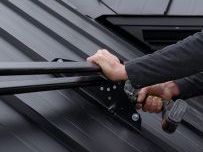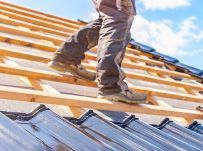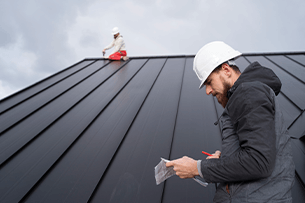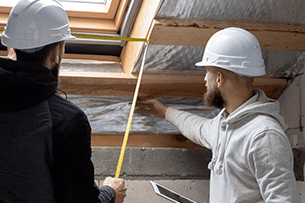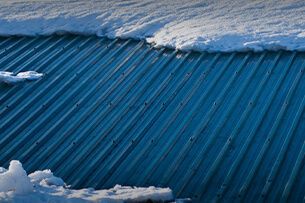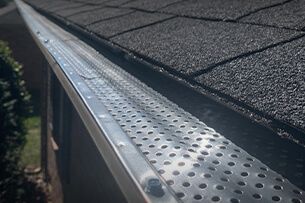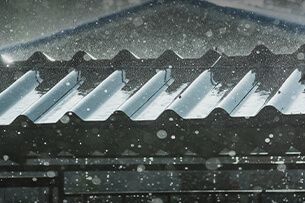Insulating Your Roofs In Winter
What goes up must come down.
In this case, we are talking about heating in the house during the winter months. A white Christmas is only magical as long as we’re sitting beside a toasty fireplace with a hot chocolate in hand. A well-insulated roof ensures the home remains warm and keeps your roof safe against the harsh winter cold. A poorly insulated home means that the heat that goes up, leaks through the gaps in the attic or roof. Meaning, what goes up, in this case, does not come back down.
Attics and roofs are some of the biggest sources of heat loss and energy loss in homes. Most of us are familiar with insulating roofs in warmer locations, used to fend off the heat especially for homes with asphalt roofs or little to no cover from trees. The radiant barrier or foil insulation in the ceiling is used to reflect, rather than absorb heat from the sun. But there are various benefits of having roof insulation for cold weather.
Did you know that a quarter of heat is lost through the roof in an uninsulated home?
As per the U.S. Department of Energy, proper insulation of your current or newly constructed home should be able to save between 10-20% of energy consumption while also reducing your monthly heating bill and the amount of CO2 emissions.
How does roof insulation for cold weather work?
It is nature’s law- heat always rises. And unless your house is well-insulated, all the heat generated, leaks through the gaps leading to you constantly wondering if your heating is causing issues. Attic insulation traps this heat to keep the house comfortable and warm. Roof insulation for cold climates is not only effective but also an invaluable investment that keeps giving returns over its 40+ year lifespan.
Roof insulation helps in:
- Keeping the house warm by retaining heat
- Helping you save on electricity bills
- Adding an extra layer of protection during the winter
- Preventing mould growth
- Lowering your carbon footprint, which is always a great thing!
What should I consider before adding roof insulation?
- Remove old insulation. Old homes with roof insulation installed a long time back can be damaged because of harsh weather conditions, mould or rodents. In case of damaged insulation, our professionals will remove it before installing new insulation.
- Air sealing the roof. Air leaks in the roof determine the performance of the roof insulation. It is important to check the roof for air leaks before installing new insulation as a roof that is not properly sealed can drop the energy efficiency of the insulation.
- Getting an energy assessment. The first step to getting the maximum output from your roof insulation for energy efficiency is to get an energy assessment. A home energy audit can help you detect places other than the attic that need more insulation. Get energy audits done by professionals to help analyze energy flow & to understand where it can be better conserved. Conducting home energy audits can have multiple benefits such as - New ways to be comfortable in your home all through the year, Lowering your electricity bills and, A properly insulated home
- Checking the R-value. R-value is a system of measurement that grades the type of insulation used in homes on the basis of how well they keep heat from entering or leaving your home. Before installing insulation, it is a crucial step to figure out which R-value climate zone your home is located in. Generally, it is the places with hot climates that have lower R-values and thus warrant a different type of insulation as compared to cooler climates.
- Building codes of your state. Last but not least, it is very important to read up and understand your state’s building codes and the permissions required. Ensure you either meet or exceed the building code requirements.
What type of insulation should I choose?
- Spray Foam Insulation: Which is one of the most common materials used in insulation. It is known to be highly effective in resisting wind and heat.
- Rigid Insulation Boards: Which are highly durable boards made of compressed closed-cell foam. They do a fair job of insulating the roof against seepage of moisture, insects as well as fire damage.
- Batt Blanket Insulation: Perhaps the one you might have most commonly seen across various homes. This is the most popular roof and attic insulation.
- Loose-fill or Blown-in Insulation: Fiberglass: Made of non-flammable material, this type of insulation is most commonly used in hard-to-reach places such as roofs or unfinished attics.
- Loose-fill or Blown-in Insulation: Cellulose: An extremely cost-effective option in roof insulation, this uses shredded paper, cardboard and other recyclable materials that are treated for fire resistance.
- Structural Insulated Panels: With growing popularity among homeowners, these panels are made of pre-fabricated slabs/boards with foam between them. They are flexible in usage and can be customized as per requirements

